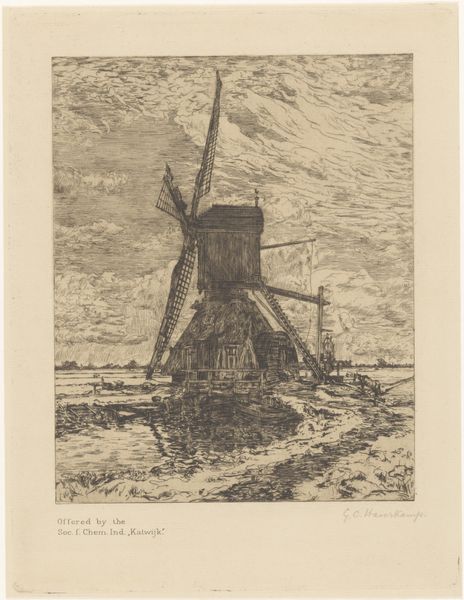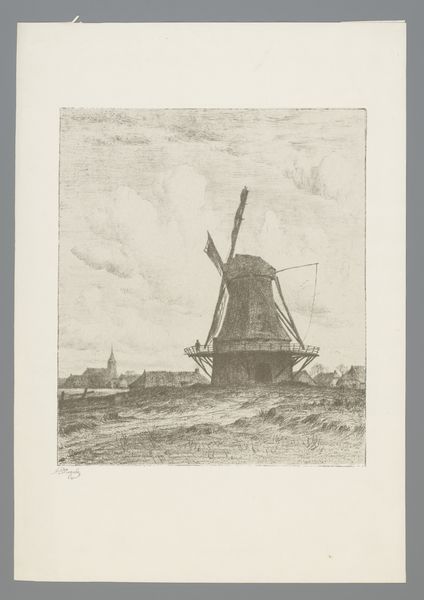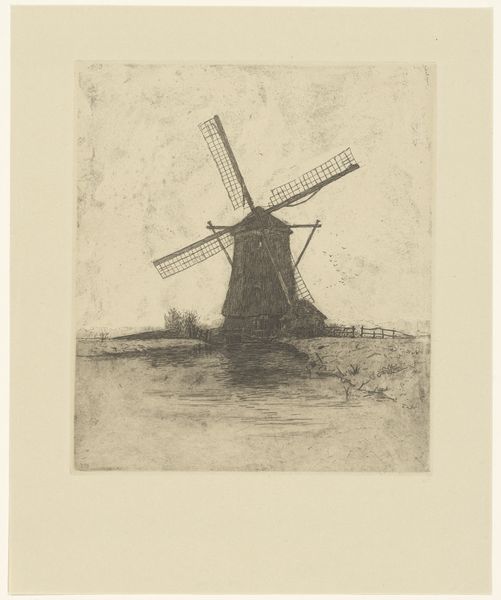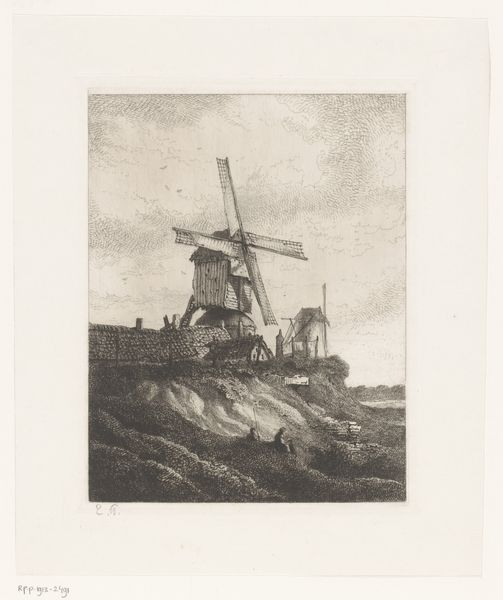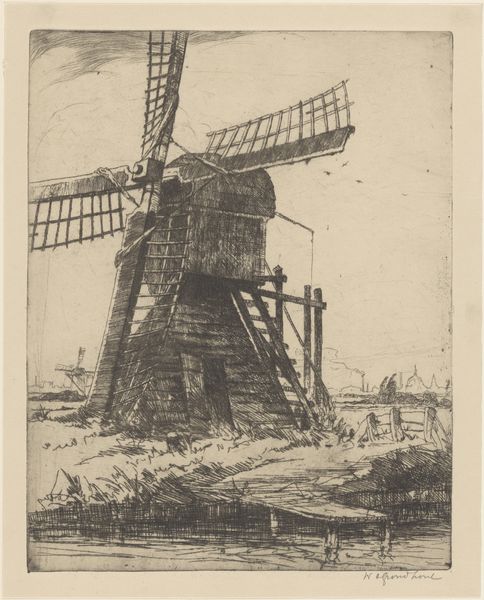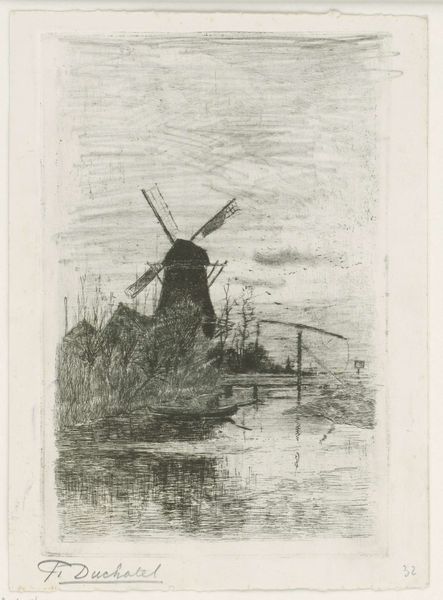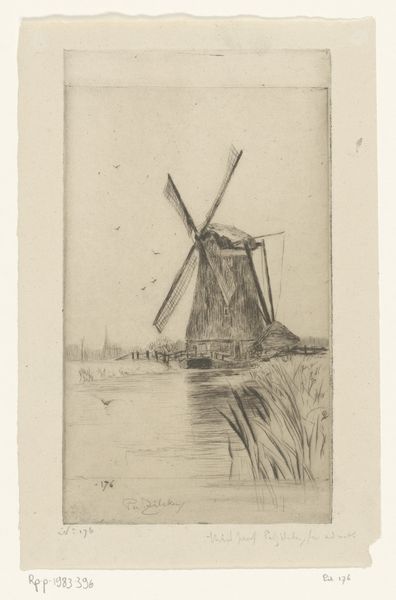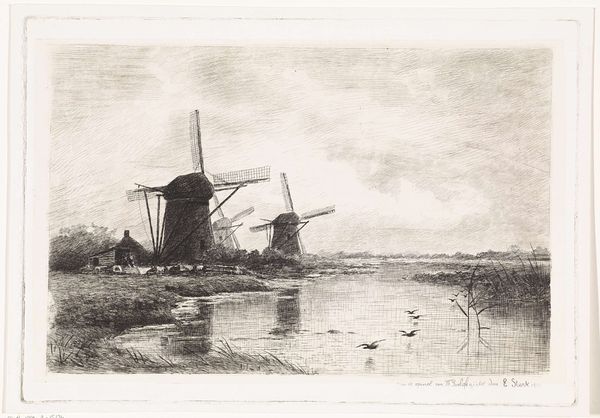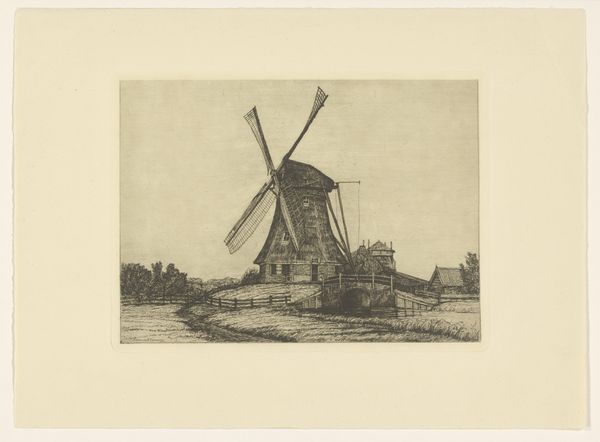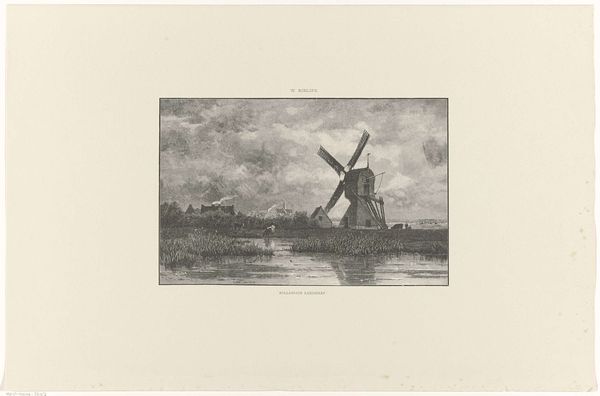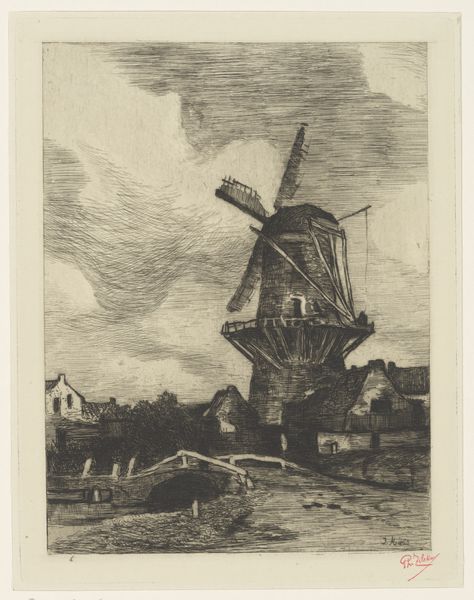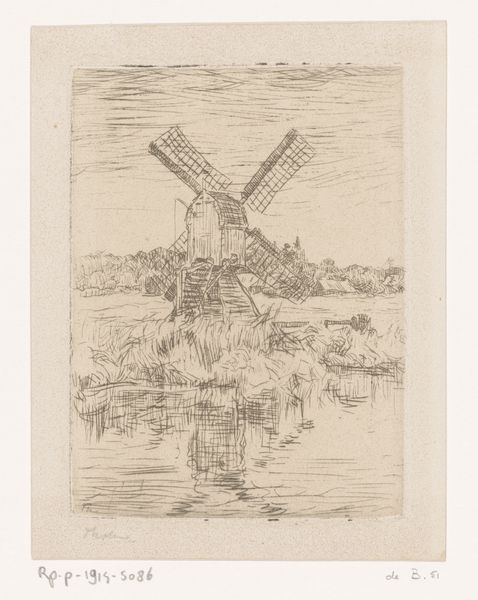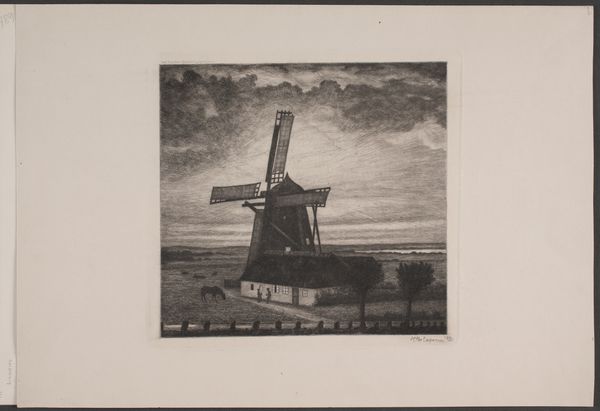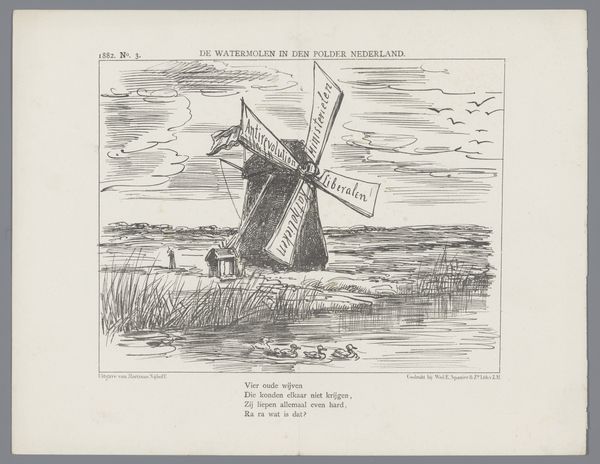
print, etching
#
dutch-golden-age
# print
#
etching
#
landscape
#
line
#
cityscape
#
realism
Dimensions: height 257 mm, width 173 mm
Copyright: Rijks Museum: Open Domain
Willem Steelink the Younger created this print, "Molen aan het water," using etching, a process that dates back to the 16th century. Steelink was part of the Hague School, a group of Dutch artists known for their realist depictions of landscapes and everyday life. This image evokes the Netherlands’ deep connection to its landscape and its ongoing struggle with water. Windmills, like the one depicted here, were crucial for land reclamation, a symbol of Dutch ingenuity and resilience. Consider the cultural significance of windmills in Dutch identity—they're not just machines, but emblems of a nation that has shaped its environment. The choice of the etching technique itself reflects a certain historical consciousness. Steelink engages with a tradition of printmaking that, by the late 19th century, was both established and evolving. Steelink draws upon history to speak to contemporary issues of identity, progress, and the relationship between humanity and nature. It’s an image rooted in its time, yet timeless in its contemplation of place and identity.
Comments
No comments
Be the first to comment and join the conversation on the ultimate creative platform.
